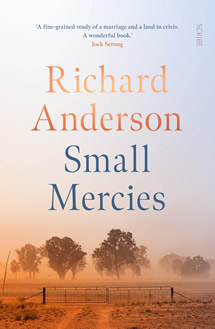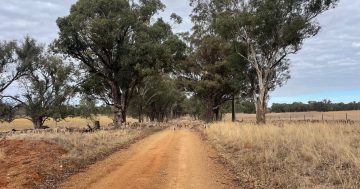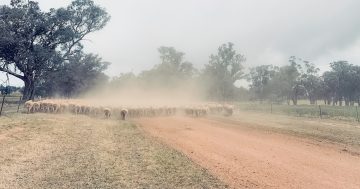Reviewed by Robert Goodman.
By Richard Anderson, Scribe, $29.99.
 Richard Anderson is a farmer and an author. Hailing from the North Coast of New South Wales, he has so far delivered two crime novels, including most recently the engaging Boxed. His previous books have been infused by a deep understanding of rural Australia, and the people who live and work there. Which makes Small Mercies feel like the book he has been circling around to write from the beginning. With very few narrative bells and whistles and no genre trappings, Small Mercies tells the intimate story of an ageing farming couple and their relationship with each other and the land.
Richard Anderson is a farmer and an author. Hailing from the North Coast of New South Wales, he has so far delivered two crime novels, including most recently the engaging Boxed. His previous books have been infused by a deep understanding of rural Australia, and the people who live and work there. Which makes Small Mercies feel like the book he has been circling around to write from the beginning. With very few narrative bells and whistles and no genre trappings, Small Mercies tells the intimate story of an ageing farming couple and their relationship with each other and the land.
Dillon ‘Dimple’ Travers and his wife Ruthie are struggling to get by. An ongoing drought has put significant pressure on their farm, forcing them to sell off some of their cattle and hand feed those that remain. When the book opens they are desperately trying to ensure that the mother of a calf has the strength to feed her newborn. So when they hear local land owner Walter Oliver on the radio talking about how farming is survival of the fittest and essentially branding them as losers it hits hard:
The pictures in the media of people in desperate straits, shooting beloved animals, were not a fair representation of the media. The insinuation, barely disguised, was that struggling farmers were losers and should be treated as such…
But Wally Oliver was right. Farming was a business: a cutthroat business masquerading as a community project.
Disgusted by this characterisation of them and their neighbours, Ruthie and Dimple decide to do something about it, to go and confront Oliver and make him acknowledge their commitment and their struggle. Given this will give them a break from the farm, they also decide to treat the trip as a short holiday.
The rest of the book chronicles the two day “holiday” that follows and the consequences of their meeting with Oliver which leads them to consider a Faustian bargain. To talk too much about this journey would take some of the pleasure out of reading it. But suffice to say that changing circumstances and a growing understanding of the history and potential future of the land that they own cause Ruthie in particular reconsider her life and her choices. Both Dimple and Ruthie struggle to make sense of their lives and their commitment to the land particularly in the face of the drought and potential future droughts.
Small Mercies is a small book – focussed as it is on two characters and their small corner of the planet – which goes big. Anderson deals with, among other things, corruption, climate change, colonisation and dispossession of Aboriginal communities, the impact of the internet, and the changing nature of Australian country towns. But in all this, he always keeps the focus tightly on Dimple and Ruthie and their understanding of these issues. Anderson shows plenty of compassion for these two and the choices that they have to make, how they feel about their decisions, and how those decisions are shaped by their history and their own connection to the land.
Small Mercies is deeply empathetic, providing insight into the almost love/hate relationship between people and the land that they work and the almost insurmountable challenges that they know that they have to face but choose to face anyway. Given the current state of the debates raging about the drought and climate and the role of agriculture in Australia and around the world, Small Mercies is timely and in some ways essential reading.
This and 500 more reviews can be found at www.pilebythebed.com.










